In the next several weeks, wildlife throughout the country will be bearing young. This is an awesome time of year and is a chance to see newborn elk calves, deer and pronghorn fawns as well as many others. At the same time, I hope you know that when you come across young animals to leave newborn wildlife alone and keep a distance.
It is so tempting when you see a young, fragile animal to step in and help. It is the instinct of many people to feel compassion for the animal, but that animal was more than likely put there by its mother for safe keeping.
It is an amazing experience to get the chance to see the splendors of the outdoors, but please view animals from a distance and do not touch. Spring is an important time in a newborn’s life, and interference from humans can put their life at risk.
Most mammals hide their young and return periodically to nurse. People finding young animals with no adult around often assume the newborns have been abandoned, but this is almost never the case. The mother knows where her young are, and will almost certainly return to care for them.
Young birds sometimes fall out of or leave their nests before they are able to fly. The parents continue to care for the young bird while it is on the ground, bringing food and trying to protect the youngster while it is in this vulnerable situation.
Getting too close to newborn wildlife can be very dangerous. The mother to the newborn animal will display very aggressive behavior when humans get close to their young. Leave the area immediately if you encounter aggressive wildlife with young. Yes, even whitetail does that look so harmless can be aggressive. It is in their nature to protect their young, just like human parents will do anything to protect their own children from harm.
The best option for people who come across newborn wildlife is to leave them alone. I had a case just a few days ago when a curious whitetail fawn I did not know was in the area decided to go for a walk. The newborn was just born hours before that same day we later learned through eyewitness accounts. The young deer left her hiding spot in the fencerow behind my home and entered my yard. As cute as the animal was, and even odd to see it in my yard, we left the baby to be. Watching it out the window of our home it was not long before its mother found it. Never assume the baby is an orphan unless you actually see the mother dead.
Most state and federal laws forbid possession of game and many nongame animals, so adopting newborn wildlife is illegal. Citations can be issued for possession of newborn wildlife with a possible penalty of up to a $1,000 fine.
If children bring home a wild “orphan,” immediately return it to the exact spot it was found. In the rare instance when a fawn or other newborn is found and the mother is known to be dead, contact the nearest game warden or biologist; do not attempt to capture these animals yourself.

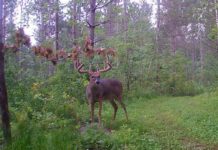
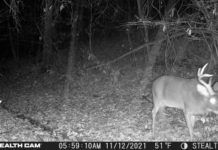

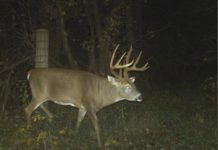




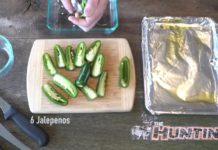
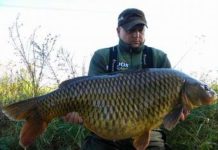
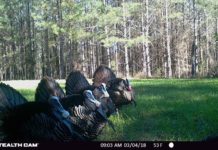

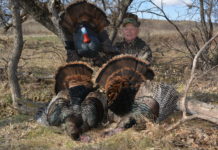

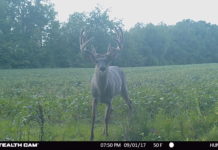
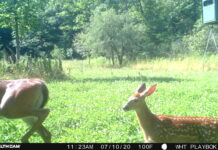
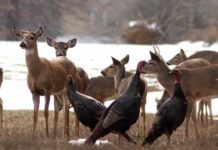
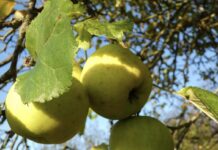
![The Best Deer Camp Chili [VIDEO] Deer Chili Ingredients, Tomatoes, Chili Spices](/wp-content/uploads/2015/10/Deer-Chili-Deer-Camp-Recipe-218x150.jpg)
![How to Call Elk Early in the Season [VIDEO]](/wp-content/uploads/2016/08/byers003-218x150.jpg)

![20180520_112028[1349]](/wp-content/uploads/2018/05/20180520_1120281349-1068x801.jpg)



![Idiots Disturb Hunter: How Would You Have Handled It? [VIDEO]](/wp-content/uploads/2015/10/DSC00110-e1474487693878-100x70.jpg)
![Albino Buck Shocked to Shed His Antlers [VIDEO]](/wp-content/uploads/2015/10/AlbinoDeer-100x70.jpg)